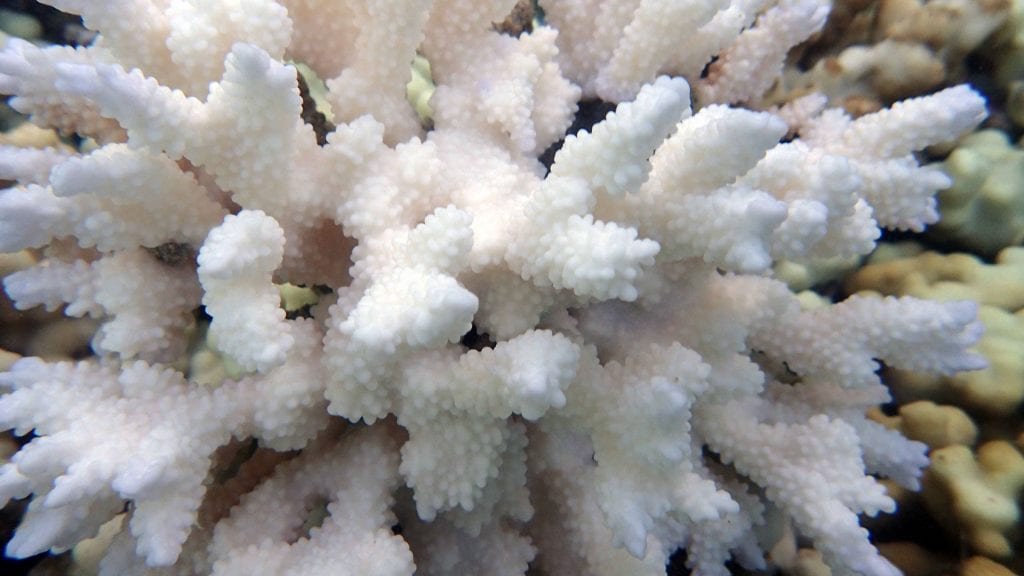
This coral's stark white color indicates that it is stressed. Corals host symbiotic algae that produce food for corals and also give corals their vibrant color. When ocean waters warm, the algae depart, leaving behind an underlying white skeleton. Corals can then starve and even die. The process is called coral bleaching, and it is beleived to occur when stressed corals produce too much of a chemical called superoxide. (Photo by Amy Apprill © Woods Hole Oceanographic Institution)
Ocean chemistry is the study of the elements and compounds that make up seawater and the chemical processes that shape life in the ocean. It explores how key elements — such as carbon, nitrogen, and oxygen — move through the ocean and interact with the atmosphere, marine life, the seafloor, and even the planet's geology.
These chemical processes help regulate Earth's climate, fuel marine ecosystems, and influence the health of our planet. For example, the ocean absorbs large amounts of carbon dioxide from the atmosphere. But as more carbon dioxide enters the sea, it changes the water's chemistry - a phenomenon known as ocean acidification — which can harm corals, shellfish, and other marine organisms. In some areas, excess nutrients cause algal blooms that can exhaust oxygen levels in the water, leading to "dead zones" where few animals can survive.
Oceanographers study ocean chemistry to understand how the ocean works, how it's changing, and what those changes mean for the environment and people.
All Topics on Ocean Chemistry
Biogeochemistry
Biogeochemistry studies the cycles of crucial elements, such as carbon and nitrogen, and their interactions with other substances and organisms as they move through Earth's atmosphere, hydrosphere, biosphere, and lithosphere.
Ocean Acidification
Ocean acidification is a reduction in the pH of the ocean over an extended period of time, caused primarily by an increase of carbon dioxide from the atmosphere.
Oxygen Dead Zones
Dead zones occur when the water lacks oxygen. Like us, marine animals require oxygen to breathe, and when oxygen levels drop too low they can suffocate.

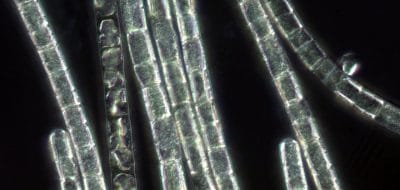
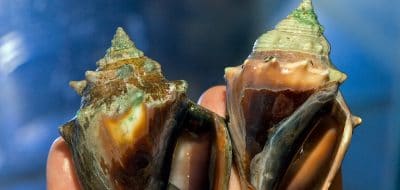
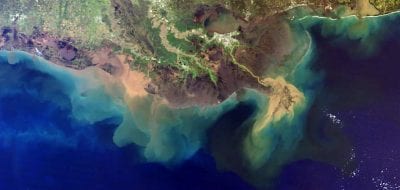
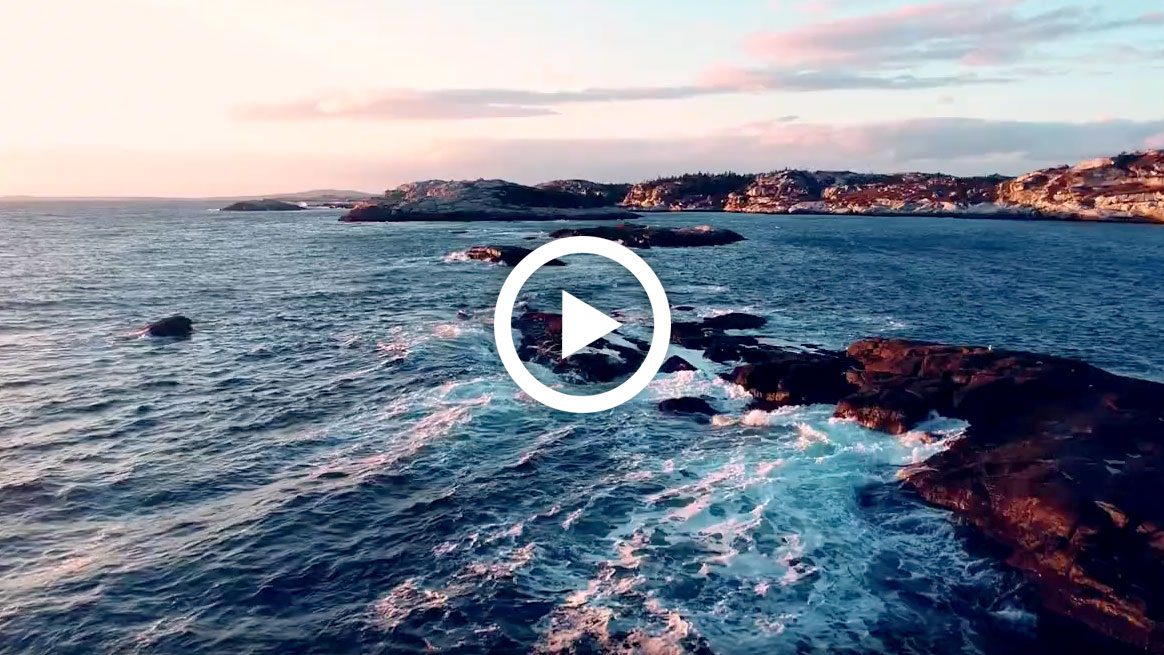

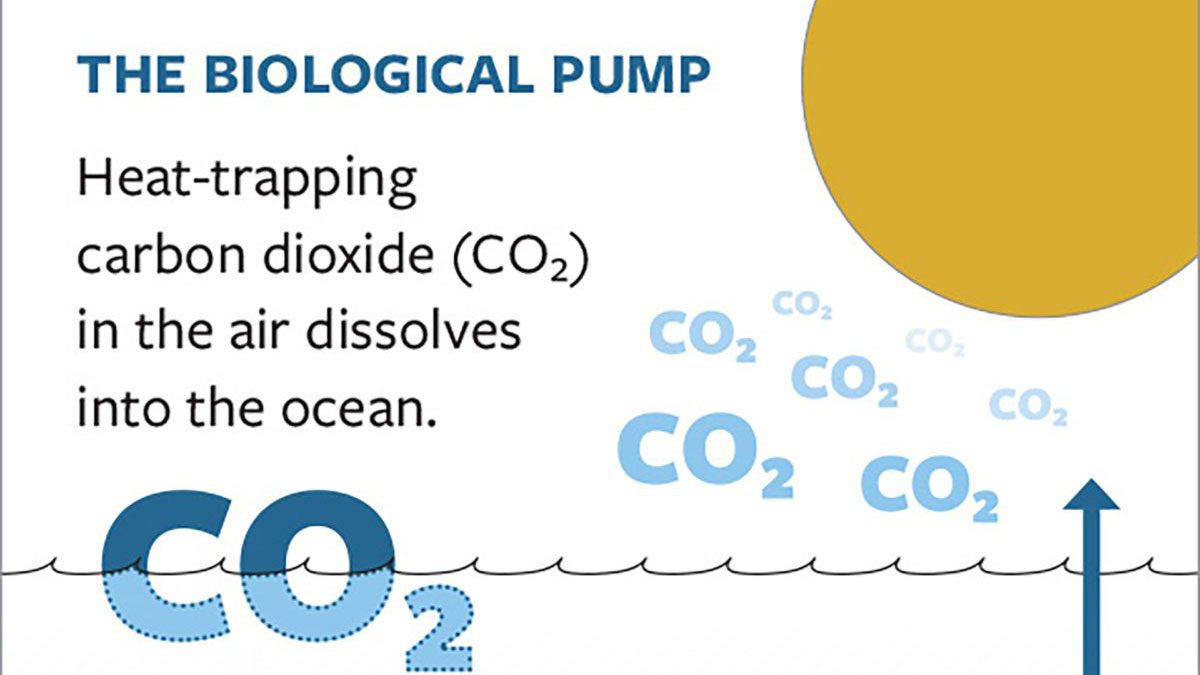
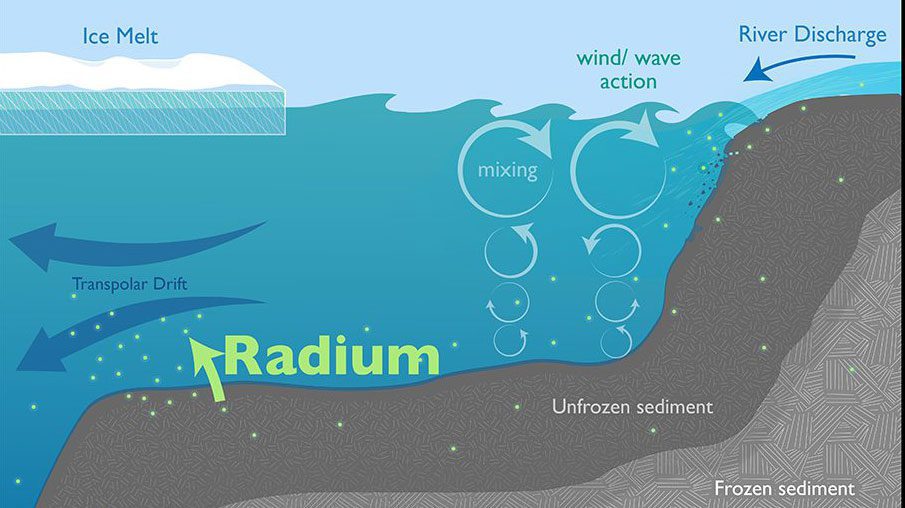
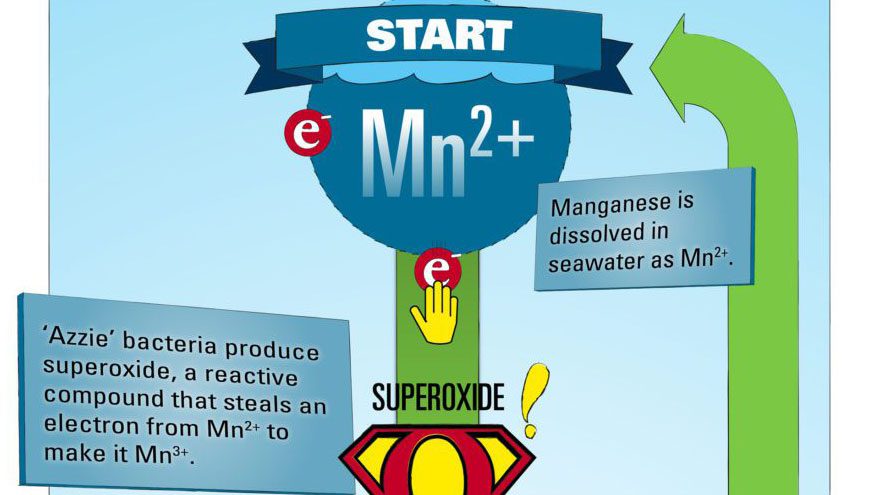
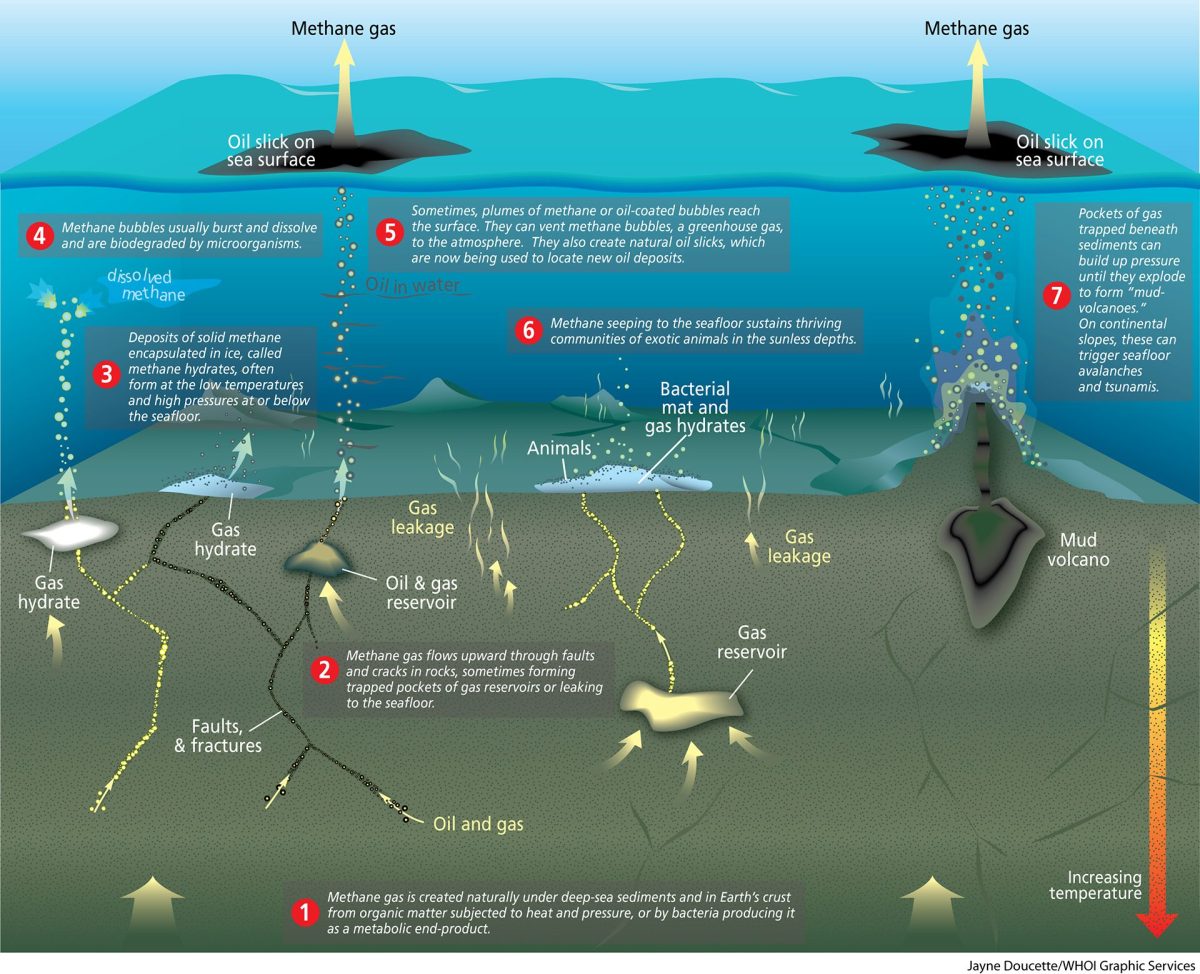
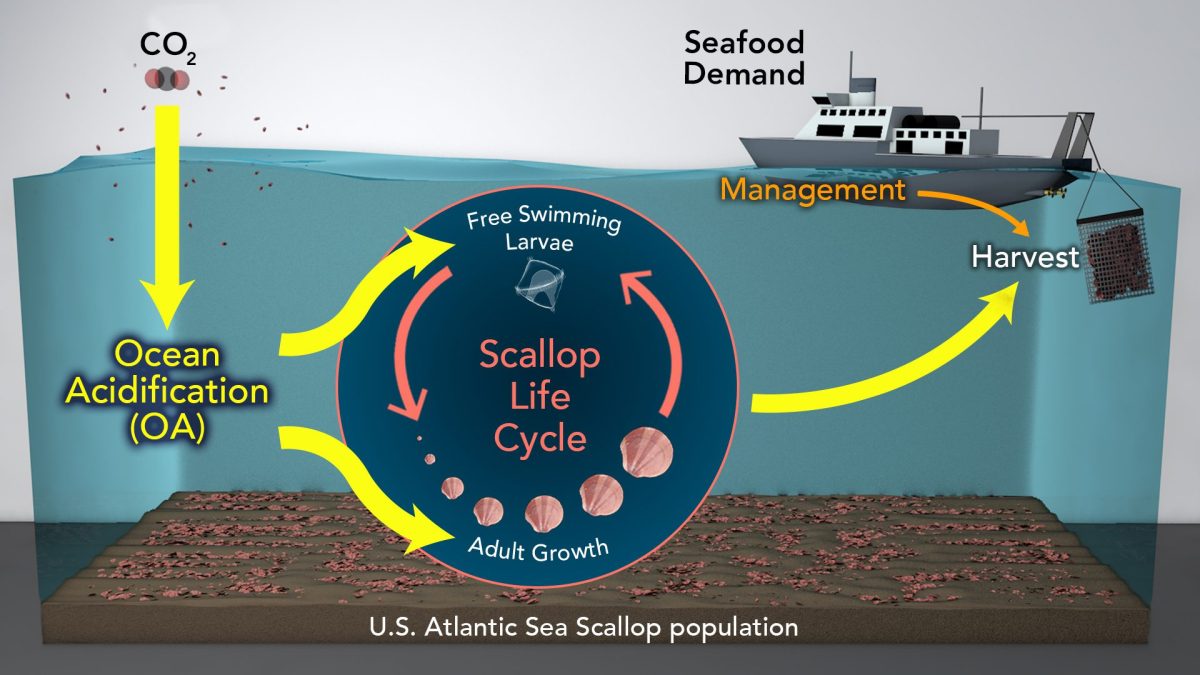
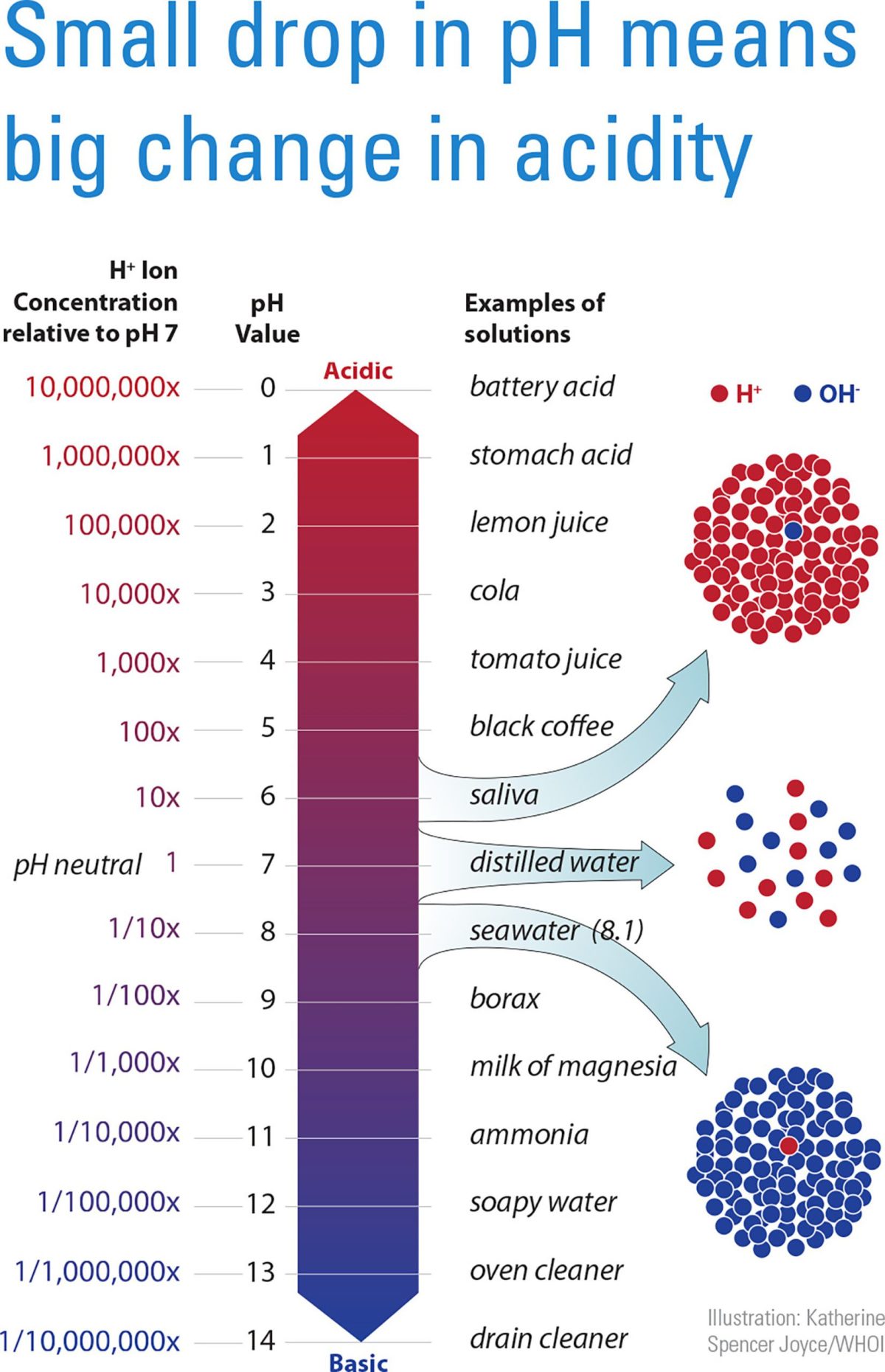
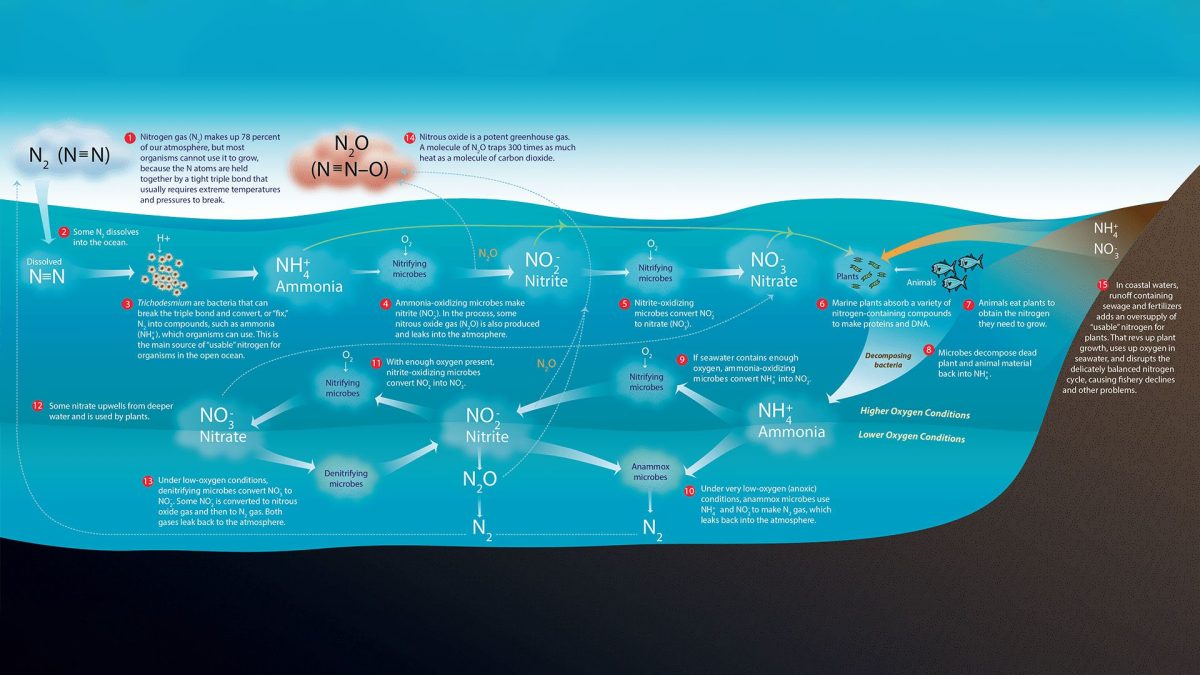
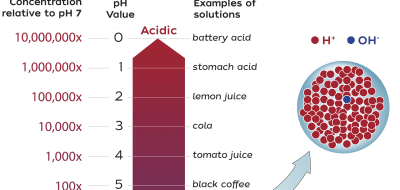
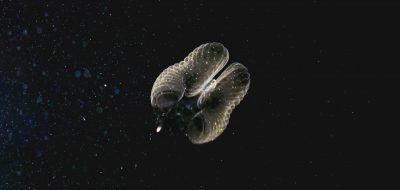
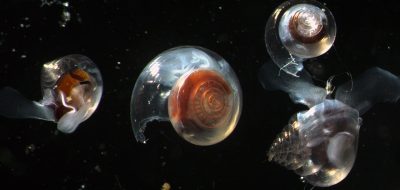
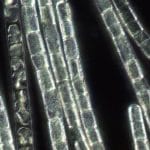 Biogeochemistry
Biogeochemistry 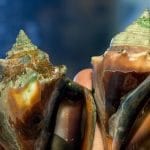 Ocean Acidification
Ocean Acidification 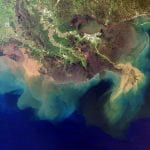 Oxygen Dead Zones
Oxygen Dead Zones